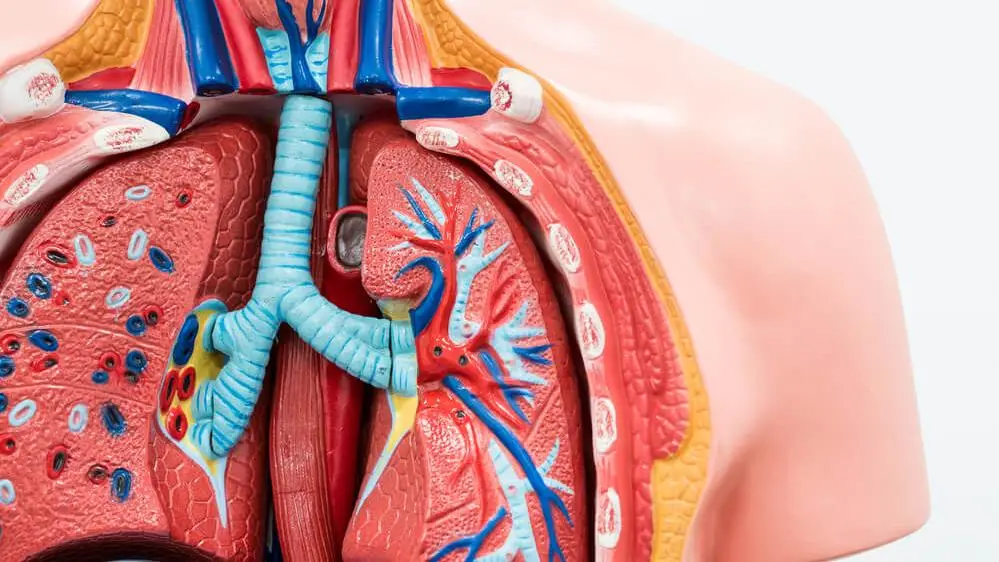Bronchitis
Get In Touch
Call Now
Monday to Friday
9:00 AM To 6:00 PM
Saturday and Sunday
Closed

Bronchitis is an inflammation of the lining of your bronchial tubes, which carry air to and from your lungs.
- People who have bronchitis often cough up thickened mucus, which can be discolored.
- Bronchitis may be either acute or chronic.
- Often developing from a cold or other respiratory infection,
- Acute bronchitis is very common.
- Chronic bronchitis, a more serious condition, is a constant irritation or inflammation of the lining of the bronchial tubes, often due to smoking.
- Acute bronchitis, also called a chest cold, usually improves within a week to 10 days without lasting effects, although the cough may linger for weeks.
- However, if you have repeated bouts of bronchitis, you may have chronic bronchitis, which requires medical attention.
- Chronic bronchitis is one of the conditions included in chronic obstructive pulmonary disease COPD.
Symptoms :
For either acute bronchitis or chronic bronchitis, signs and symptoms may include:
- Cough, Production of mucus (sputum), which can be clear, white, yellowish-gray or green in color — rarely, it may be streaked with blood
- Fatigue
- Shortness of breath
- Slight fever and chills
- Chest discomfort
- Acute bronchitis, you might have cold symptoms, such as a mild headache or body aches. While these symptoms usually improve in about a week, you may have a nagging cough that lingers for several weeks.
- Chronic bronchitis is defined as
- a productive cough that lasts at least three months with recurring bouts occurring for at least two consecutive years.
- you’re likely to have periods when your cough or other symptoms worsen. At those times, you may have an acute infection on top of chronic bronchitis
See your doctor if your cough:
- Lasts more than three weeks
- Prevents you from sleeping
- Is accompanied by fever higher than 100.4 F (38 C)
- Produces discolored mucus
- Produces blood
- Is associated with wheezing or shortness of breath

Acute Bronchitis Causes
- Acute bronchitis is usually caused by viruses, typically the same viruses that cause colds and flu (influenza). Antibiotics don’t kill viruses, so this type of medication isn’t useful in most cases of bronchitis.
- The most common cause of chronic bronchitis is cigarette smoking. Air pollution and dust or toxic gasses in the environment or workplace also can contribute to the condition.
Is acute bronchitis contagious?
- Yes. Most of the time, acute bronchitis is caused by a virus, such as the flu (influenza) virus.
- However, many different viruses — all of which are very contagious — can cause acute bronchitis.
- Viruses spread mainly from person to person by droplets produced when an ill person coughs, sneezes or talks and you inhale the droplets.
- Viruses may also spread through contact with an infected object. This happens when you touch something with the virus on it and then touch your mouth, eyes or nose.
- To reduce your risk of catching viruses that can cause bronchitis:
- Avoid close contact with people who have the flu or another respiratory illness
- Wash your hands often or use an alcohol-based hand sanitizer
- Avoid touching your eyes, nose and mouth
- Get an annual flu shot
- People who have chronic bronchitis or asthma sometimes develop acute bronchitis. In these cases, the acute bronchitis is most likely a complication of the existing condition. This type of bronchitis is not caused by an infectious virus, so it’s less likely to be contagious.

Risk Factors Of Bronchitis
Factors that increase your risk of bronchitis include:
- Cigarette smoke. People who smoke or who live with a smoker are at higher risk of both acute bronchitis and chronic bronchitis.
- Low resistance. This may result from another acute illness, such as a cold, or from a chronic condition that compromises your immune system. Older adults, infants and young children have greater vulnerability to infection.
- Exposure to irritants on the job. Your risk of developing bronchitis is greater if you work around certain lung irritants, such as grains or textiles, or are exposed to chemical fumes.
- Gastric reflux. Repeated bouts of severe heartburn can irritate your throat and make you more prone to developing bronchitis.
- Avoid cigarette smoke. Cigarette smoke increases your risk of chronic bronchitis.
- Get vaccinated. Many cases of acute bronchitis result from influenza, a virus. Getting a yearly flu vaccine can help protect you from getting the flu. You may also want to consider vaccination that protects against some types of pneumonia.
- Wash your hands. To reduce your risk of catching a viral infection, wash your hands frequently and get in the habit of using alcohol-based hand sanitizers.
- Wear a surgical mask. If you have COPD, you might consider wearing a face mask at work if you’re exposed to dust or fumes, and when you’re going to be among crowds, such as while traveling.
During the first few days of illness, it can be difficult to distinguish the signs and symptoms of bronchitis from those of a common cold. During the physical exam, your doctor will use a stethoscope to listen closely to your lungs as you breathe
In some cases, your doctor may suggest the following tests:
- Chest X-ray. A chest X-ray can help determine if you have pneumonia or another condition that may explain your cough. This is especially important if you ever were or currently are a smoker.
- Sputum tests. Sputum is the mucus that you cough up from your lungs. It can be tested to see if you have illnesses that could be helped by antibiotics. Sputum can also be tested for signs of allergies.
- Pulmonary function test (Spirometry). During a pulmonary function test, you blow into a device called a spirometer, which measures how much air your lungs can hold and how quickly you can get air out of your lungs. This test checks for signs of asthma or emphysema.
- Most cases of acute bronchitis get better without treatment, usually within a couple of weeks.
- Medications
- Because most cases of bronchitis are caused by viral infections, antibiotics aren’t effective.
- If your doctor suspects that you have a bacterial infection, he or she may prescribe an antibiotic.
- In some circumstances, your doctor may recommend other medications, including:
- Cough medicine. If your cough keeps you from sleeping, you might try cough suppressants at bedtime.
- Other medications. If you have allergies, asthma or chronic obstructive pulmonary disease (COPD), your doctor may recommend an inhaler and other medications to reduce inflammation and open narrowed passages in your lungs.
- Lifestyle and home remedies
- Avoid lung irritants. Don’t smoke. Wear a mask when the air is polluted or if you’re exposed to irritants, such as paint or household cleaners with strong fumes.
- Use a humidifier. Warm, moist air helps relieve coughs and loosens mucus in your airways. But be sure to clean the humidifier according to the manufacturer’s recommendations to avoid the growth of bacteria and fungi in the water container.
- Consider a face mask outside. If cold air aggravates your cough and causes shortness of breath, put on a cold-air face mask before you go outside.
What Patients Say
Our Testimonials
Why patients trust Dr. Farah with their health

Came in with a headache and started to feel sick. Had a big trip for New Years, therefore I had to solve my problems quickly. Dr. Farah helped me right away and treated all my problems, he saved my weekend. Will come here again soon.
Melanie Warner

I was in a lot of pain and I walked in and the receptionist was so lovely. I was into see the doctor within five minutes and he listened to me and was wonderful. I’ve been to a few urgent cares and this one by far is the best !
Tiffany Lee-Frank

I absolutely love Dr Farah and his whole staff on the medical and the spa side. I’m not just saying this, Dr Farah has been my doctor over 10 years and I’ve been using his Rejuvenate spa for about 4 years now. I would give them 10 stars if I could!!!
Lori Brooks

Ashley and Anna are friendly and made me feel welcome and at ease. Dr. Farah was very understanding and answered all my stupid questions. They were all very professional and patient with me.
juli ross
Providing Urgent Care for non-life-threatening health complications

Urgent care services
Monday to Friday
9:00 AM To 6:00 PM
Saturday and Sunday
Closed
17130 Ventura Boulevard,
Encino California 91316






